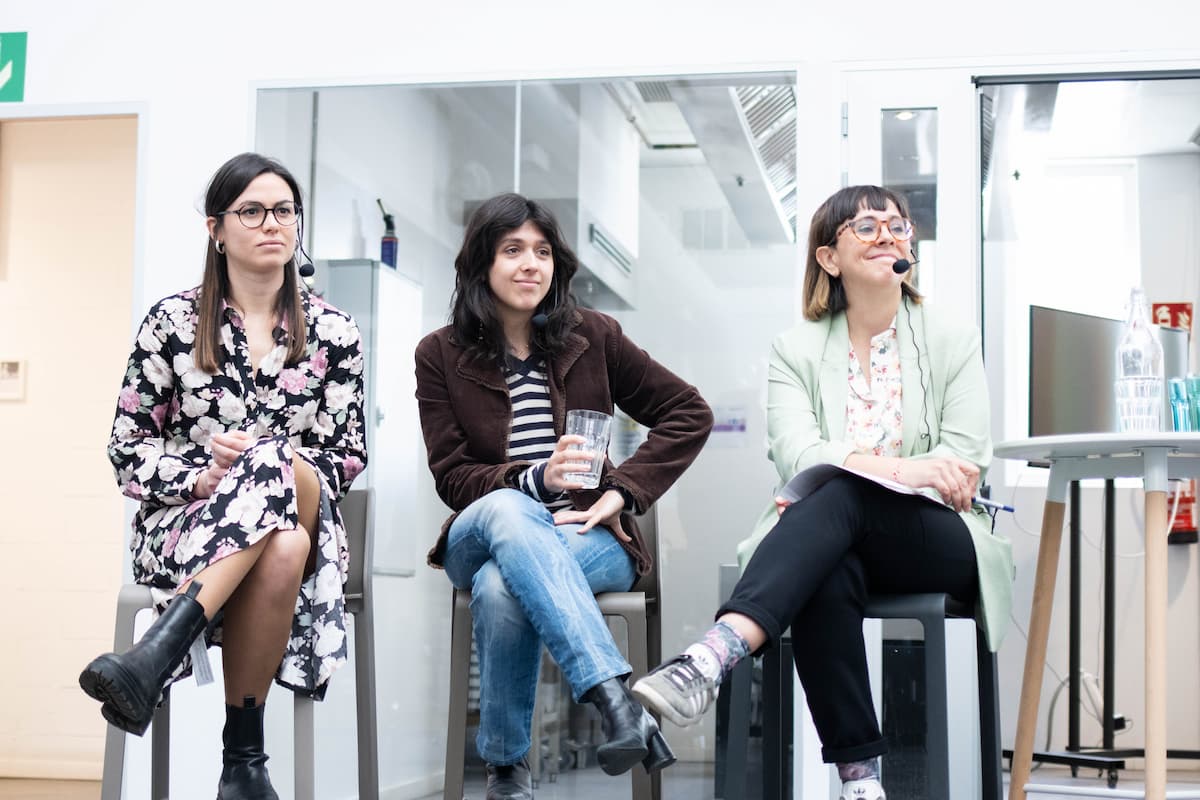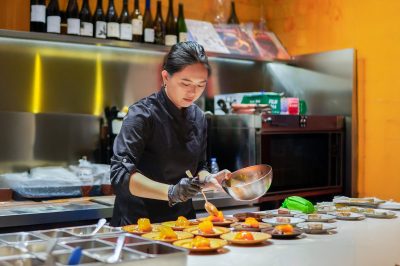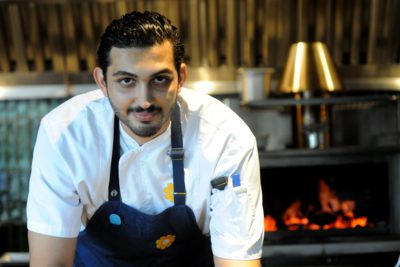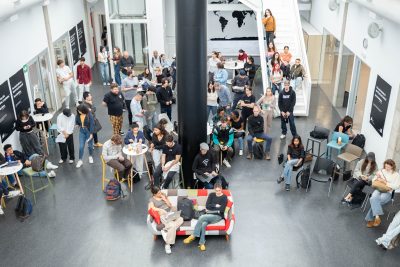The future of gastronomy has two clear fronts that need to be addressed through education in cooking schools. On the one hand, how technology and artificial intelligence will affect current jobs, and how chefs can adapt to this change. And, on the other hand, the fact that people management, roles and inequalities that exist in professional kitchens need to change to generate more inclusive environments and reduce, the gender gap in the value chain. In short, education is undoubtedly the main lever for this change.
Today in CIBTalks, we take a detailed look at how to address these two issues from the point of view of professionals from each field. Then, we end with a workshop to design proposals on how to generate sustainable and inclusive spaces in the food industry.
The robotization of teams in gastronomy: The convergence between technology and people
John Hutt is a food theorist who conducts culinary research and devises management solutions to transform the food industry. He works at Remy Robotics, a company born from the need to generate robotic ecosystems for more sustainable and efficient environments in the food sector. John tells us more about how technology and robotization affect the sector:
- Do you think gastronomy and robotization can coexist? We have to start with the fact that robots are not going to replace chefs. Robotics and artificial intelligence will translate into improvements in the quality of jobs in the kitchen, meaning repetitive tasks will be replaced so that creativity and innovation can take center stage. Technology has allowed us to redefine the relationship we have with our quality of life for the better.
- What role does artificial intelligence play in professional kitchens, and how will it affect the way we cook? Artificial intelligence will definitely be used for day-to-day tasks that are repetitive and tedious. It will be able to perform tasks such as organizing calendars, budgets, and general accounting issues. However, in gastronomy, it will be able to follow the steps of a recipe, but it will not be able to create one on its own. In the next few years, we are going to see large culinary projects supported by robots, and probably many chefs working with them.
- How do we create teams working in gastronomy in the future, given the automation of certain processes? Teams will need to be interdisciplinary; it will no longer be sustainable to have a group of people doing the same task. When team members complement each other and share different skills, you achieve synergy, which allows them to move towards their goals more fluidly.
- How should teams prepare for the coming changes in robotization? There are two important aspects: education and adaptability. You need to be prepared for what’s coming to be able to adapt to the changes. If you understand in which direction things are moving, you can prepare, understand what’s needed and adapt. For example, in gastronomy, you have to understand trends, know what people want, and “go fishing, already knowing what the fish will look like”.
- What skills do you think are most valuable for chefs to develop in new robotic ecosystems? All soft skills are fundamental, communication being one of them, as they allow you to relate to people who think differently. This also allows you to belong to an interdisciplinary environment that achieves significant advances with the use of technologies.
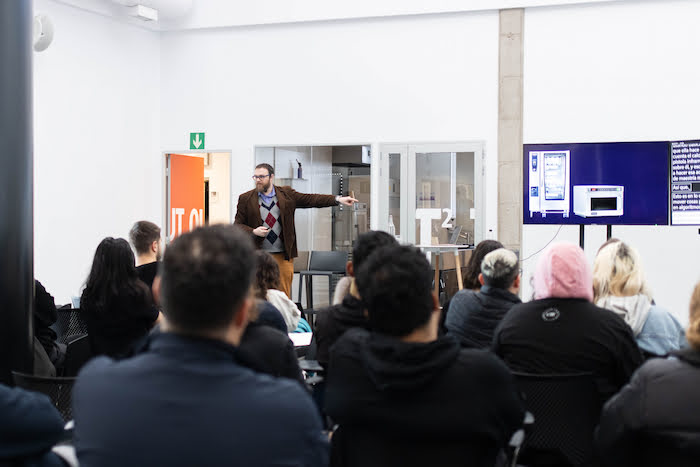
Roundtable: Towards a future in which gastronomy achieves gender equality
On this occasion, the round table featured a panel of experts on gender issues, inclusive environments and leadership. Soraya Martínez, psychologist and specialist in team management and leadership, is passionate about the growth of people and teams sustainably; Claudia Polo, gourmet, feminist and creator of the brand Soul in the Kitchen; and Sandra Lozano, Ph.D. in Archeology, feminist and a teacher at several universities. Here are some relevant questions and answers from this round table:
Which areas of gastronomy need to be strengthened in order to continue moving towards gender equality?
Soraya Martínez: We need to work on making the women who are doing very important things in gastronomy more visible. We also need to work on the systems in which this environment moves, rethink how we do things, and see if there are other, more inclusive ways of doing them that help everyone to contribute. It is clear that talent is still concentrated in a very specific group of people, hence the importance of everyone being able to contribute to the world of gastronomy.
How can cooking schools help to promote equality?
Sandra Lozano: Schools should focus on teaching new models of team management and eliminate traditional and outdated dynamics from gastronomic models. We also need to shine a light on all gender equality issues as much as possible. Only by talking about it can we help people become more familiar with these issues and bear them in mind when creating diverse and equal teams. This would be a huge step.
What attributes should a person who leads a kitchen have?
Soraya Martínez: Collaboration should be encouraged. Creativity is necessary for the kitchen, but hierarchical systems cancel out creativity. This traditional system fosters negative feedback in the face of mistakes. We have to start to change that and allow mistakes and ideas to be expressed freely.
This traditional system fosters negative feedback in the face of mistakes. We have to start to change that and allow mistakes and ideas to be expressed freely.
How can cooking schools help boost this paradigm shift in Gastronomy?
Claudia Polo: Cooking is not just putting food in a pot and making it taste good. It is through this process that we do more things, for example, restaurant ecosystems are made up of people from different places who interact, coexist, and discuss. We need to strengthen communication and empathy between team members and the knowledge of the entire value chain. Understanding where food comes from is an essential part of doing things better.
Workshop on how to sustainably manage teams in the future: diversity, equity, and inclusion
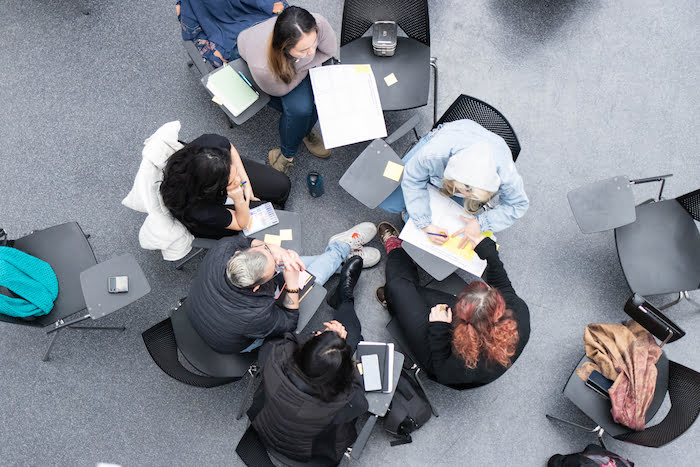
In this space for reflection offered two main axes: leadership and communication in kitchens, conciliation, and overexploitation. By working on a series of challenges, students worked in groups to come up different versions of self-managed kitchens, without hierarchies, and new leadership models focused on relationships and people. The result was an explosion of creativity and innovation.
In conclusion, AI and robotics in kitchens, the design of more inclusive environments, and the reduction of the gender gap are just some of the conversations that need to be generated in schools so that we can continue to transform the world of gastronomy.

